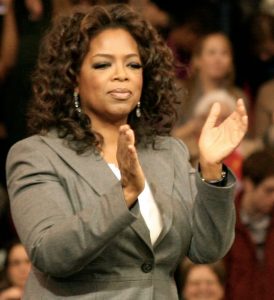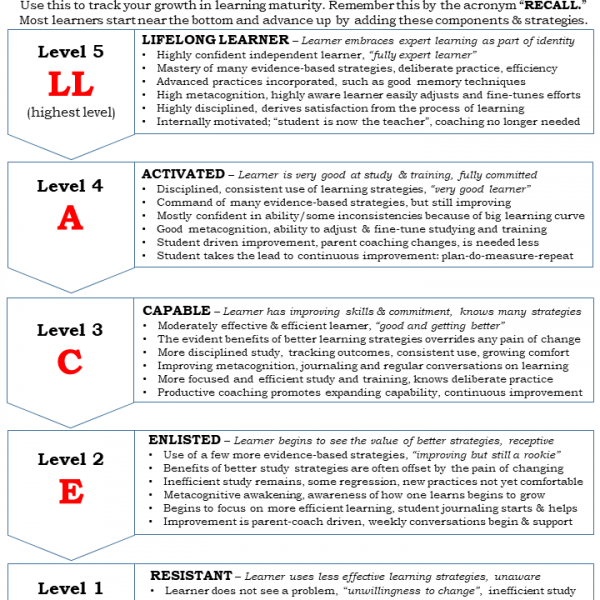
Oprah’s Three Questions for Better Homeschool Teaching

Reading time: 4 minutes
What can Oprah teach us about homeschooling? Yes, that Oprah and she has a valuable lesson. Who wouldn’t want to learn from her? This useful idea can be easily added to your homeschool instructional toolkit.
 Brendon Burchard, the author of High Performance Habits: How Extraordinary People Become That Way, says Oprah Winfrey starts every meeting the same way: She asks three questions:
Brendon Burchard, the author of High Performance Habits: How Extraordinary People Become That Way, says Oprah Winfrey starts every meeting the same way: She asks three questions:
“What is our intention for this meeting? What’s important? What matters?”
My first reaction after reading this was, Isn’t this redundant because, you know, she’s Oprah and she’s perfect, and her people are probably well prepared for the meeting? Hasn’t this information already been communicated when the meeting was called? We know well-run companies distribute agendas in advance of their meetings and her companies seem pretty successful, so don’t they have this information? And then there is this big reality – if you knew Oprah was going to be at your meeting, wouldn’t you show up well prepared? Well, at least these were my initial thoughts.
But I kept thinking about this – there must be a good reason why she asks these questions?
She’s one of the most successful businesswomen in the world. There must be a method here. What does she know that we don’t? Why does she ask these questions before she begins her meetings?
Then it came to me. These questions are intended to trigger thinking about the expected outcomes of that meeting. She wants everyone to be crystal clear about the why behind the meeting, and she won’t begin until she is confident she has this. Her questions have the intention of focusing people on what needs to be done. She is not going to let that meeting get hijacked by less important matters.
We know through our own experiences that meetings (of every kind) have lots of problems, and lack of focus in a big one. There’s lots of research and many bad examples to support this.
According to one national survey, the typical meeting is only about 50% efficient. In the average meeting, attendees report agenda items are covered only 53% of the time. Many meetings don’t result in decisions or assigned actions – their just talk seemingly drawing on a third grade “show and tell” session. The same agenda item keeps being raised for discussion but is never fully addressed.
For these and other reasons, most people feel negative about attending meetings. And this is not because they believe meetings are inherently bad or unnecessary, it’s because people don’t like wasting their time. And they don’t like being asked to participate in things that don’t seem to accomplish what they set out to do.
Oprah’s point seems to be simple – we are not going to let these things happen today in our meeting. We are going to focus on that which is important. Period.
In my career, I have experienced more than my share of bad meetings. I had my misgivings, as did many others sitting around the table, I could see it in their eyes. Disorganized and just plain bad meetings are pervasive, regardless of what type, who attends, and the subject at hand, and this should raise a warning flag to us when we lead our meetings.
It’s way too easy for our meetings get off track and not accomplishing what we set out to do. Minor items and less pressing matters have a way of taking control of the meeting.
OK, we are ready to explore this question – what does Oprah and bad meetings have to do with running your home classroom? After all, she runs a gigantic business empire, and we mortals are tending to smaller issues in our comfy home classrooms.
Your Classroom Lesson is a Meeting
When you examine how learning works, every lesson you lead is a type of meeting. The activity doesn’t matter – lecturing, problem solving, or supporting an interactive activity, it’s still a meeting. Both Oprah’s meetings and your lessons have these things in common – they are a gathering with a specific purpose, there should be a desired outcome, and both have planned activities designed to accomplish something that matters.
Instructing a class is running a unique kind of meeting.
Unfortunately, neither your meetings nor mine, have the benefit of being led by Oprah. Darn. But we don’t need her as long as we understand two points. Students need to be focused on the task when thinking and learning, and we can never assume everyone in the room understands what we are trying to do.
Always begin by encouraging your kids to “tune in” with a few good questions, so you know they are on board, and the best way to do this by involving them in a (hopefully) short discussion of what you hope to accomplish today. Don’t think of this as your icing on the cake; it’s practicing sound fundamentals.
It’s not complicated. Start by thinking about what you have been doing up to now. Ask yourself – “What am I doing in my home classroom to make sure we, both me and my kids, know why we are here and what we intend to accomplish?” It takes little time to have this short discussion to ensure everyone is on the same page.
Of course, we can’t become Oprah, and we don’t have to use her questions, but we can create our own three unique questions that fit our teaching style. It’s a good practice to prompt everyone in your classroom to think about the task at hand and the outcomes we seek. This helps us stay on track and not suffer the problems that so many other meetings experience.
I think it’s clear Oprah is on to something important. Here is another way of stating what she understands:
Clearly Understood Intentions = Better Outcomes
Oprah knows if you want to be a high-performing organization, you need clarity. We also know if you want effective learning to happen, you also need that clarity. You preemptively sift out distractions so you and your kids can not only focus, but continually re-focus, on what is important in that lesson. At work or home, adults and kids should know what the desired outcomes are, and they need a razor-sharp understanding of the why they are there.
That’s because clarity isn’t something given to you. Clarity is something you have to seek— you only find clarity when you actively search for it. This is why Oprah feels the need to always ask her three simple but powerful questions.
Your lessons have the opportunity to do great things – don’t let them dissipate because of distractions and sidetracks. Take that minute to discuss why you are here and what you hope to accomplish. This is not a lecture, it’s a conversation you initiate when you begin each lesson. Develop your simple but powerful version of Oprah’s three questions. Then use them to prepare your kids to learn.







